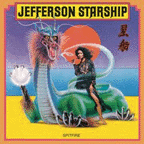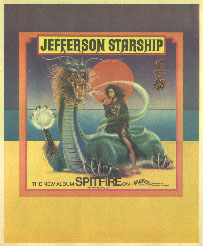- Home
- Introduction, Update Information, Links
- The Super Seventies "Classic 500"
- Readers' Favorite Seventies Albums
- Seventies Single Spotlight
- The Top 100 Seventies Singles
- Favorite Seventies Artists In The News
- Seventies Almanac - Year By Year
- Seventies Singles - Month By Month
- Seventies Albums - Month By Month
- Seventies Daily Music Chronicle
- Seventies Superstars In Their Own Words
- The Super Seventies Archives
- Seventies Trivia Quizzes & Games
- Seventies MIDI Jukebox
- The Super Seventies Bookstore
- The Super Seventies Photo Gallery
- Seventies' Greatest Album Covers
- Popular Seventies Movies & TV
- Seventies Celebrity Portrait Gallery
- Seventies Lyrics Hit Parade
- Top Seventies Artist Music Videos
- Seventies Usenet Music Forums
- Seventies Smiley Calendar
- EXTRA!
- Superseventies.com Facebook Page
- Superseventies.com Reddit Discussions
- The Super Seventies Blog
- Tweet The Seventies
- RockSite InfoBank
- Beatlefan Site
- Thanks For Your Support! / Top Sellers
- Search The Rock Site/ The Web

Spitfire
Jefferson Starship
Grunt BFLI-1557
Released: July 1976
Chart Peak: #3
Weeks Charted: 38
Certified Platinum: 9/28/76
The only American rock bands that have enjoyed more than a decade of commercial success while evolving their own artistic visions are the Beach Boys and the Jefferson Airplane/Starship. As the Beach Boys defined pleasure in the Sixties, the Airplane defined the counterculture's political and spiritual ideas and lived out the tribal myth. Though the Airplane/Starship's history has proven far from idyllic, it is resilient; the creative nucleus of Paul Kantner, Grace Slick and Marty Balin successfully refocused the loftier concept of the Jefferson Starship.
To analyze Starship cosmology -- an oleo of Orentalia, science fiction and psychedelic fantasy -- would be beside the point: one needn't buy the Starship's extraterrestrial fantasies in order to enjoy what is often magnificent rock music.
Spitfire, the third Starship album, mixes the oracular and the mundane with a classical sense of balance. While the music no longer has the explosive urgency of youth, it combines a rare stylistic breadth with awesomely controlled power. The music that Jon Landau described in 1970 as "an elongated folk-rock fragment" has since been carried to what is at once its stylistic apex (it cannot become more sophisticated without incorporating jazz) and its denouement (if it were any richer it would begin to sound enervated). More than the Airplane's, the Starship's music builds a symphonic sound and embellishes it with spectacular instrumentation. This approach was first fully developed on Kantner/Slick's impressive "Sketches of China," from Baron Von Tollbooth. On Spitfire, its most magnificent expression is "St. Charles," a transcendently erotic East/West ying/yang vision of love. Here, a relatively simple melodic idea is elaborated in an unusually sophisticated (for rock) choral setting and covered by increasingly heavy waves of chromatic guitar work. The cut slowly climaxes, then slowly fades. This kind of monumentality, seldom attempted in rock and rarely achieved, embodies the Starship's aesthetic/political/spiritual cosmology. The result is absolutely thrilling. Peaks almost as high are attained on the shorter "Love Lovely Love," a beautiful call-and-response between singer Marty Balin and Craig Chaquico's guitar, and on the tougher, bluesier "Dance with the Dragon." Though it has many fine moments, the medley, "Song to the Sun/Ozymandias/Don't Let it Rain" lacks "St. Charles"'s unity and comes dangerously close to being pretentious.
The intense songs are set off by lighter material. "Big City" casts drummer John Barbata as a lecherous buffoon, hamming it up before basic, well-executed rock & roll. In the slinky "Hot Water," Grace Slick half camps though the role of temptress. The killer change-of-pace is "Cruisin'," a tough and sexy boy-girl-car anthem. This steamy tour de force, which in its sheer sexual energy matches the best of the Stones, shows off Barbata's drumming at its aggressively lascivious best and boasts a sinuous tomcat vocal by Balin. Balin also scores with "With Your Love," a reprise of last year's hit, "Miracles," from Red Octopus.
Balin's role in Starship, though increasingly large, is by no means the sole reason for the band's success, as some have claimed. His erotic singing and writing complement Slick and Kantner's operatic mysticism, while their passionate erotica exalts Balin's earthiness. In a transcendental love song like "St. Charles" these ingredients balance each other perfectly, with Balin's emphatic sexuality acting as a grounding wire.
While no one cut here is ultimately as compelling as "Miracles," the album's at least as consistent as Dragon Fly and Red Octopus. Balin is now more smoothly integrated into the Starship apparatus; in fact, the album's feeling of cooperation and care is extraordinary. Grace Slick's singing, though routinely maligned in recent years, has held up well. Her invocatory style is as unpretentious as it is direct, and on the right song it is truly inspirational.
Perhaps more crucial to the Starship's success is the growth of their brilliant young guitarist, Craig Chaquico. Though he doesn't exhibit the lyric effulgence and dexterity of Carlos Santana, it seems inevitable he will very soon. That the Starship would find and develop a talent like Chaquico shows astuteness and generosity. It is one of many signs that this tribe has the spirit and the will to replenish itself, however and whenever necessary. The proof, of course, is finally in their albums. Dragon Fly was an exuberant, confident reassertion of vitality. Red Octopus allowed the individual members to shine more brightly. Spitfire is their most cohesive, best-produced album. Together, these works comprise one of the finest contributions to American rock in the Seventies.
- Stephen Holden, Rolling Stone, 8/26/76.
Bonus Reviews!
There's something to be said for noticing the obvious -- there must be, since so many people miss it -- and one of the things that stands out here is the proposition that seven's a crowd in a rock band. It isn't so much that the arrangements are too full, it's the management that has to be asserted to prevent that, a mixture of traffic-directing, factor-weighing, and ego-nursing that siphons off energy the album's music could have used. Spontaneity would have happened with passion, of course, overcoming all this as it did to a fair degree in Red Octopus . The Airplane-Starship needs to have key members agitated about something. This time, it feels more like a bag of tricks being dipped into, production being slicked down (yet, some sounds don't have the bite they could use), and if you can see through the fancy footwork, what's there is time being marked. The vocals, of course, are particularly long on expertise, but Marty Balin and Grace Slick are both transparent when they have to fake excitement. So'm I, so I don't dare go through the motions of jumping up and down over this.
- Noel Coppage, Stereo Review, 10/76.
I still respect this group, I really do. Their apparently random yet inexorable evolution as a collective entity (not just Grace & Paul Plus) resonates in their deepening textures. They seem to have ideals. You might even say they keep '60s notions of communality alive. Or are they just accommodating '70s notions of corporate identity? They're so vague -- they meaning the people, the ideals, and on this album even the textures -- that it's hard to tell. Or care. C
- Robert Christgau, Christgau's Record Guide, 1981.
![]() Reader's Comments
Reader's Comments
No comments so far, be the first to comment .
![]() Main Page
| Readers' Favorites
| The Classic 500
| Other Seventies Discs
| Search The RockSite/The Web
Main Page
| Readers' Favorites
| The Classic 500
| Other Seventies Discs
| Search The RockSite/The Web




